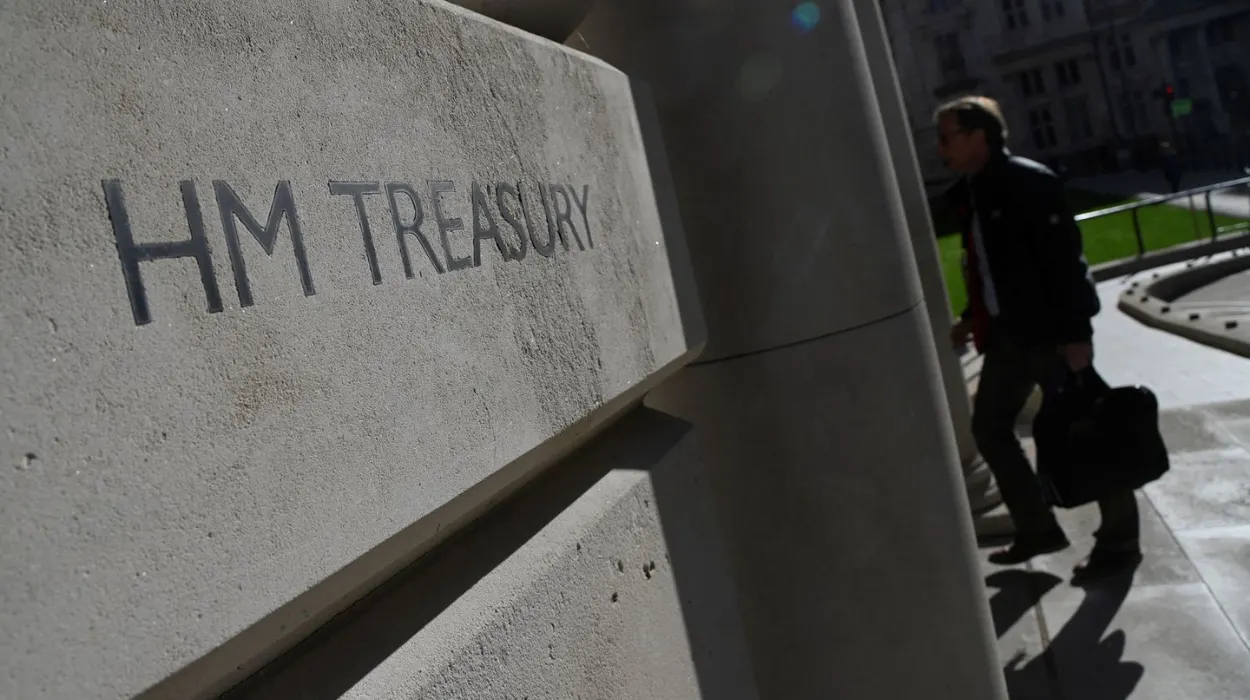UK (Parliament Politics Magazine) – UK borrowing fell to £1.1bn in July, well below forecasts, easing pressure on Rachel Reeves ahead of her autumn budget despite rising debt over the year.
As reported by the Guardian, official data shows the UK borrowed less than expected in July, giving Chancellor Rachel Reeves some breathing space before the autumn budget.
ONS’ data about UK borrowing in July
The Office for National Statistics reported that public sector net borrowing dropped to £1.1bn, down £2.3bn from July 2024, exceeding expectations.
The figure fell short of City predictions of £2.6bn and the Office for Budget Responsibility’s £2.1bn estimate.
Public sector borrowing from April to July hit £60bn, up £6.7bn from last year, marking the third-highest April-to-July figure on record. The government borrowing cost has risen as investors demand higher rates on bonds.
The ONS highlighted that monthly borrowing fell more than expected. Analysts attributed the drop to higher tax receipts following Reeves’s April increase in employer National Insurance contributions.
The latest figures show compulsory social contributions have risen by £9.5 billion year on year.
According to the ONS, public sector net debt stood at 96.1% of GDP, marking one of the highest levels since the 1960s. It also reported a sharp increase in government expenditure. This was driven by higher public sector pay rises and inflation-linked benefits. Debt interest also grew as inflation raised borrowing costs.
What did ONS’s Rob Doody say about July borrowing trends?
Rob Doody, ONS deputy director for public sector finances, stated,
“Borrowing this July was £2.3bn down on the same month last year, and was the lowest July figure for three years. This reflects strong increases in tax and national insurance receipts.”
He said,
“However, in the first four months of the financial year as a whole, borrowing was over £6bn higher than in the same period in 2024.”
What did Treasury’s Darren Jones say about government borrowing?
Darren Jones, the chief secretary to the Treasury, stated,
“We’re investing in our public services and modernising the state, to improve outcomes and reduce costs in the medium term. Far too much taxpayer money is spent on interest payments for the longstanding national debt.”
He added,
“That’s why we’re driving down government borrowing over the course of the parliament – so working people don’t have to foot the bill and we can invest in better schools, hospitals, and services for working families.”
What tax plans is Rachel Reeves considering ahead of the autumn budget?
Rachel Reeves is reviewing new tax options ahead of the autumn budget, as slow growth, rising debt interest, and welfare changes strain fiscal rules.
The chancellor has focused on strengthening the economy. Her plans include targeted investment and changes to planning rules to drive higher productivity.
Self-assessed tax deadlines usually strengthen Britain’s finances in July, but higher spending and a slowing economy have weighed on receipts.
Officials are exploring inheritance and property taxes amid rising pressure on public finances.
What did Martin Beck say about the UK’s public finances?
WPI Strategy’s chief economist, Martin Beck, stated that the latest numbers may ease pressure on Rachel Reeves.
He added,
“Talk of a huge ‘black hole’ in the public finances is looking overstated, but the outlook is still uncomfortably tight.”
What did Nabil Taleb say about the UK’s fiscal pressures?
Nabil Taleb, economist at PwC UK, said,
“Although tax receipts rose in July, the chancellor remains under pressure as she tries to balance weak growth with the fiscal rules she has committed to. While the government’s manifesto promises to maintain investment and shield working people from tax hikes, analysis from NIESR suggests up to £40bn in additional revenue may be needed to restore headroom and maintain investor confidence in the UK’s public finances.”
What did Alex Kerr say about the UK budget outlook?
Alex Kerr, UK economist at Capital Economics, said,
“Ultimately, today’s release does little to brighten the gloomy outlook ahead of the budget later this year. The government’s U-turns on spending cuts and potential upward revisions to the Office for Budget Responsibility’s borrowing forecasts mean the chancellor may need to raise £17-27bn at the Autumn Budget to maintain the £9.9bn of headroom against her fiscal mandate.”
He added,
“And given that she is struggling to stick to existing spending plans and we doubt the gilt market will tolerate significant increases in borrowing, most of that will have to be funded by tax rises.”
Key details about UK borrowing costs
Gilt yields indicate the cost of UK government borrowing, rising when bond prices fall. They are influenced by investor confidence, inflation, and interest rates.
Higher yields increase national debt interest payments. This reduces funds available for public services like healthcare and education.


